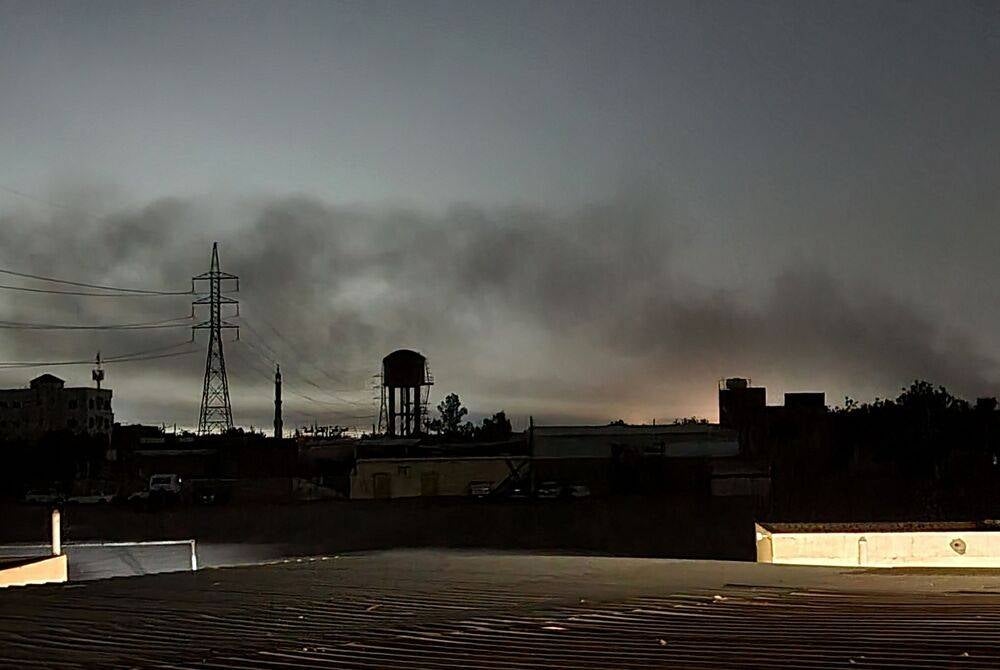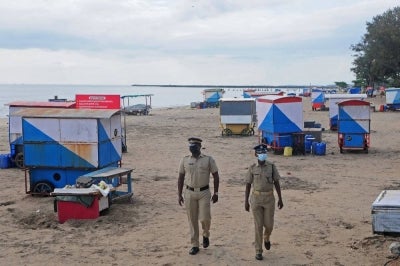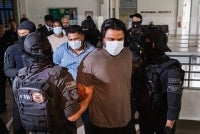'Nothing left' as looting guts Sudan's already crippled economy

KHARTOUM, Sudan - A month ago, Mohsen Abdelrahman owned a small but profitable jewellery store in Khartoum. Now, he has nothing to his name but a broken lock and a hollowed-out shopfront.
Ten days after battles broke out between two rival Sudanese generals, he received a call from the shopkeeper next door to his business saying it had been looted.
Despite the danger, Abdelrahman braved the relentless gunfire and air strikes ravaging the capital to get to his store on the other side of town, only to have his worst fears confirmed.
"Everything I owned was gone," he told AFP, adding that now he just wants "this war to end, so I can start over." There is no end in sight to the conflict pitting the forces of army chief Abdel Fattah al-Burhan against those of his deputy-turned-foe Mohamed Hamdan Daglo, who commands the paramilitary Rapid Support Forces.
But even before the fighting broke out, Sudan was one of the world's poorest countries, brought to its knees by decades of international sanctions under former dictator Omar al-Bashir, as well as rampant corruption and the 2011 independence of South Sudan which held almost all the country's oil.
After a brief respite following Bashir's ouster, a 2021 coup led by Burhan and Daglo saw the international community cut $2 billion of annual aid to the country, slashing 40 percent of its budget.
The economy has been in free fall since, with the government never announcing a 2023 budget but instead boasting that dizzying inflation had recently fallen under 100 percent.
Prior to the ongoing conflict, Khartoum saw signs of economic renewal, with international restaurants and supermarkets stocked with organic food and American goods -- although much of it was smuggled through the Sahel.
But nowadays Khartoum, which is home to five million people, is a city whose shattered windows, gutted shopfronts, pockmarked cars and empty shelves bear witness to the rampant violence and looting.
Khartoum airport, now a shell of its former self, has been shut down since the fighting began on April 15.
Sudan once depended on vital trade coming through Port Sudan on the Red Sea, where now only planes and ships full of fleeing civilians take off, and crucial humanitarian aid trickles in.
Nothing has been spared from the looting, including hospitals, humanitarian organisations, and the abandoned houses of more than 500,000 people who fled the capital for neighbouring towns, or other countries.
Noureddine Adam's mobile phone store was no exception. On the fifth day of the conflict, a lock was broken and his shop was ransacked.
"They didn't leave anything, and now I have nothing left," he told AFP.
In addition to having lost their inventory, shop owners and traders like Adam are now saddled with debt, he said.
According to a customs official who spoke to AFP on condition of anonymity, the Soba container terminal south of Khartoum - where imports are processed before coming into the capital and other areas -- has been stripped bare.
"It was all products from abroad that had come in and were waiting to be processed, but their importers couldn't come and finish the paperwork because of the war," he said.
According to witnesses in Khartoum North, wheat silos at Sayga, Sudan's largest producer of flour, have been emptied out - a potential disaster for a country where the UN predicts 19 million people could be food insecure within six months.
Khartoum residents have tried to hold out hope, even while sheltering under air strikes and seeing their fleeing neighbours' homes broken into and ransacked.
But Abdeldayem Omar knows his clothing store is gone for good.
"On the third day of the war, a rocket fell on the market," he told AFP.
"Some stalls burned to the ground, including mine. Others partially survived the flames, but whatever was left was looted." The irony, according to him, is that "the main police station in the district is headquartered inside the market itself." "But the police have completely disappeared, and there's no protection left." - AFP
Download Sinar Daily application.Click Here!














